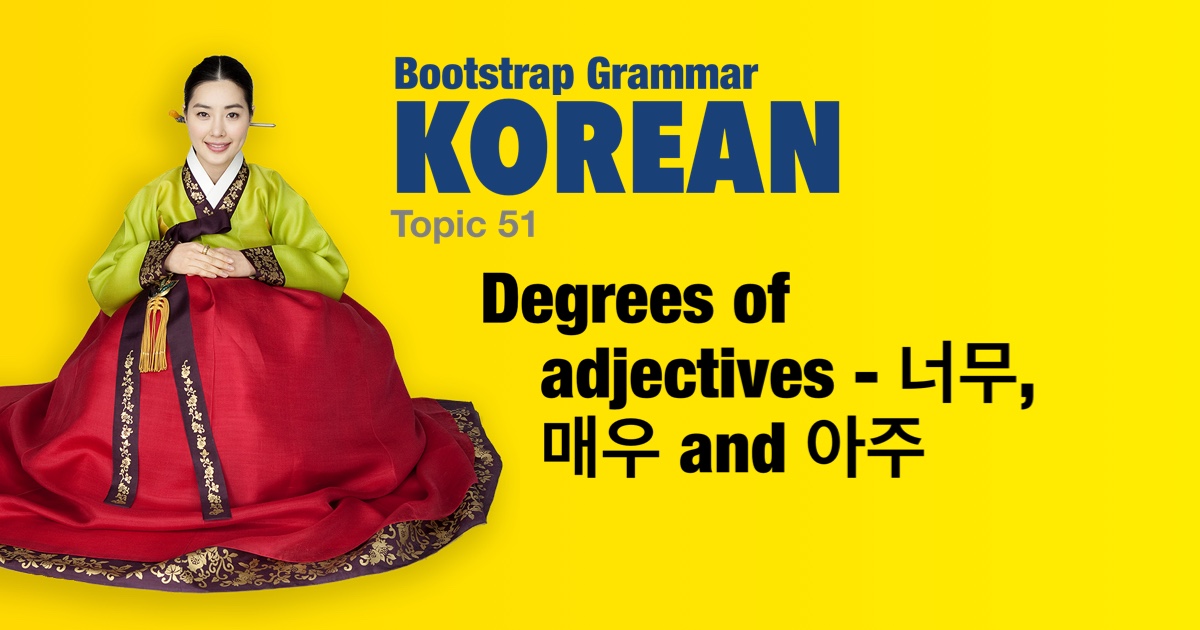Korean grammar - Degrees of adjectives - 너무, 매우 and 아주 |
|||
|
|||
The words 매우 and 아주 can be used to intensify adjectives - like 'very' and 'extremely' etc. in English. • 너무 means 'very' and also 'too much' or 'excessively' • 매우 means 'very' • 아주 means 'extremely' All three can be used with both adjectives and verbs. |
| Examples: | |
|
신발이 너무 커요.
The shoes are too big. |
|
|
당신은 그 질문을 너무 자주 해요.
You ask that question too often.
|
|
|
아주 큰 사과 주세요.
Give (me) a very big apple, please. |
|
|
이 사람은 매우 바쁜 사람이에요.
This person is a very busy person. |
|
|
어제 아주 맛있는 음식을 먹었어요.
Yesterday (I) ate very delicious food. |
|
|
아주 재미있는 영화였어요.
It was a very fun movie. |
|
|
아주 따뜻한 커피를 주세요.
Please give me a very hot coffee. |
|
|
저는 중국에서 매우 싼 운동화를 샀어요.
I bought very cheap sneakers while in China. |
|
|
저기 아주 큰 사람이 승호예요.
The very big person over there is Seunghoi. |
|
|
아주 특별한 것을 사고 싶어요.
(I) want to buy something very special. |
|
|
정말 너무 어두워요?
Is it really too dark?
|
|
|
수영장에 사람이 너무 많아요.
There are too many people in the swimming pool. |
|
|
괜찮아요. 수영장이 매우 커요.
It is fine - the swimming pool is very big. |
|
|
그는 너무 많이 먹고 매우 아팠어요.
He ate too much and became very sick. |
|
|
이 비행기는 매우 높이 날 수 있어요.
This plane is able to fly extremely high. |
|
|
아이들하고 노는 것이 아주 재미있어요.
Playing with the children was really fun. |
|
 |
|




